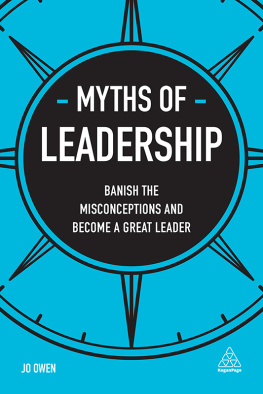Copyright 2004 by John MacArthur.
All rights reserved. No portion of this book may be reproduced in any form without the written permission of the copyright owner, except for brief excerpts quoted in critical reviews.
Published in association with the literary agency of Wolgemuth & Associates, Inc.
Unless otherwise noted, Scripture quotations are from THE NEW KING JAMES VERSION, 1979, 1980, 1982 by Thomas Nelson, Inc., Publishers.
Nelson Books titles may be purchased in bulk for educational, business, fund-raising, or sales promotional use. For information, please e-mail SpecialMarkets@ThomasNelson.com.
Scripture quotations noted NASB are from the NEW AMERICAN STANDARD BIBLE, copyright The Lockman Foundation 1960, 1962, 1963, 1968, 1971, 1972, 1973, 1975, 1977, 1988, 1995. Used by permission.
Scripture quotations noted NIV are from the HOLY BIBLE: NEW INTERNATIONAL VERSION. Copyright 1973, 1978, 1984 by International Bible Society. Used by permission of Zondervan Publishing House. All rights reserved.
Scripture quotations noted KJV are from the KING JAMES VERSION of the Bible.
The map on was created by Phil Johnson.
Cover design by David Uttley
UDG|DesignWorks, Inc.
Interior design and typeset by Katherine Lloyd, The DESK
ISBN -13: 978-1-4185-1337-5 (eBook)
Library of Congress Cataloging-in-Publication Data
MacArthur, John, 1939
The book on leadership / John MacArthur.
p. cm.
Includes bibliographical references.
ISBN 0-7852-6251-2 (hardcover)
ISBN 0-7852-8838-4 (trade paper)
1. Christian leadership. 2. Christian leadershipBiblical teaching. 3. Bible. N.T. Criticism, interpretation, etc. 4. Paul, the Apostle, Saint. I. Title.
BV652.1.M23 2004
253dc22
2004020084
06 07 08 09 10 RRD 10 9 8 7 6 5 4 3 2 1
Information about External Hyperlinks in this ebook
Please note that footnotes in this ebook may contain hyperlinks to external websites as part of bibliographic citations. These hyperlinks have not been activated by the publisher, who cannot verify the accuracy of these links beyond the date of publication.
W hat makes a leader? Rank? Status? Celebrity? Caste? Clout? Style? Is leadership automatically bestowed by a box on the organizational chart? Where do position and power figure into the formula for leadership? And what is the ideal model for leaders? Is it the corporate CEO? The military commander? The head of state?
Jesus answered all those questions in a few words. His views on leadership are conspicuously out of step with the conventional wisdom of our age: You know that the rulers of the Gentiles lord it over them, and those who are great exercise authority over them. Yet it shall not be so among you; but whoever desires to become great among you, let him be your servant. And whoever desires to be first among you, let him be your slave just as the Son of Man did not come to be served, but to serve, and to give His life a ransom for many (Matthew 20:2528).
According to Christ, then, the truest kind of leadership demands service, sacrifice, and selflessness. A proud and self-promoting person is not a good leader by Christs standard, regardless of how much clout he or she might wield. Leaders who look to Christ as their Leader and their supreme model of leadership will have servants hearts. They will exemplify sacrifice.
I realize those are not characteristics most people associate with leadership, but they are essential qualities of a biblical approach to leadership, which is the only kind Im interested in.
Notice, by the way, that Jesus was expressly teaching Christians to v approach leadership in a different way and from a radically different point of view than the leaders of this world. Its folly for Christians to assume (as these days many do) that the best way for Christians to learn leadership is from worldly examples.
Theres a crucial reason for this: Leadership for the Christian always has a spiritual dimension. The duty of leading people carries with it certain spiritual obligations. That is as true for the Christian president of a secular company as it is for the stay-at-home mom whose sphere of leadership might extend no further than her own children. All Christians in every kind of leadership are called to be spiritual leaders.
Ill be speaking about the spiritual dimension of leadership throughout this book, but please dont imagine that Im writing only to pastors, career missionaries, or church leaders. Every leader who is also a Christianincluding the manager of the widget factory, the football coach, and the public-school kindergarten teacherneeds to remember that the leadership role is a spiritual responsibility, and the people we lead are a stewardship from God, for which we will one day be called to give an account (cf. Matthew 25:1430).
If you truly understand your accountability before God as a leader, you can begin to see why Christ portrayed the leader as a servant. He was not suggesting, as many have supposed, that lowliness alone is the essence of leadership. There are plenty of humble, meek, tenderhearted, servant-minded people who are not leaders. A true leader inspires followers. Someone who has no followers can hardly be called a leader.
So while it is certainly true that leadership demands a servants heart; it is by no means the case that everyone with a servants heart is thereby a leader. Theres far more to leadership than that.
To put it simply, leadership is influence. The ideal leader is someone whose life and character motivate people to follow. The best kind of leadership derives its authority first from the force of a righteous example, and not merely from the power of prestige, personality, or position. By contrast, much of the worlds leadership is nothing but manipulation of people by threats and rewards. That is not true leadership; its exploitation. Real leadership seeks to motivate people from the inside, by an appeal to the heart, not by external pressure and coercion.
For all those reasons, leadership is not about style or technique as much as it is about character.
Want proof that effective leadership is not just about style? Notice that a number of divergent leadership styles are modeled in Scripture. Elijah was a loner and a prophet; Moses delegated duties to trusted people whom he kept close to him. Peter was brash; John was tenderhearted. Paul was a dynamic leader, even when being carried about in chains. He influenced people primarily through the force of his words. Evidently, his physical appearance was anything but powerful (2 Corinthians 10:1). All were men of action, and all used their diverse gifts in markedly different ways. Their leadership styles were varied and diverse. But all were true leaders.
Again, I think its a serious mistake for Christians in leadership to pass over these biblical examples of leadership and turn instead to secular models of leadership in pursuit of style-obsessed formulae they think will make them better leaders. Yet entire organizations now exist to train church leaders with leadership techniques and management styles gleaned from worldly experts. I recently read a Christian book that analyzes the entrepreneurial and administrative techniques used at Google.com, Amazon.com, Starbucks, Ben & Jerrys, Dell Computers, General Foods, and several other prestigious secular corporations. The authors of that book occasionally try to insert a biblical proof-text or two to buttress some of the principles they teach, but for the most part, they uncritically accept whatever seems to produce success as a good model for church leaders to imitate.



















